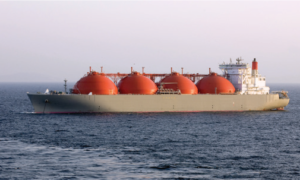 BURNABY, B.C.—British Columbia construction and resource development companies are celebrating two pieces of good economic news – the impending announcement that LNG Canada will go forward, and last night’s trade deal between Canada, the United States, and Mexico.
BURNABY, B.C.—British Columbia construction and resource development companies are celebrating two pieces of good economic news – the impending announcement that LNG Canada will go forward, and last night’s trade deal between Canada, the United States, and Mexico.
“What we have just seen may go down as one of the best weekends in B.C.’s economic history,” said Chris Gardner, president of the Independent Contractors and Businesses Association (ICBA). “We’re relieved the Canadian government was able to hammer out this trade deal with the U.S. and Mexico, and ecstatic that LNG Canada’s partners are poised to proceed with construction of their $40-billion project. Missing out on either the trade deal or LNG would have hurt our economy.”
ICBA has fought long and hard to get an LNG industry going in B.C. For five years, through its #Get2Yes campaign and website, ICBA has made the case that historic investments in a liquefied natural gas industry would benefit everyday British Columbians, resource workers and construction companies. ICBA also led the push to get the federal government to overturn tariffs on imported steel components needed to build the LNG facility.
“B.C. is on the brink of landing the largest private sector investment in Canadian history. This project will spin off thousands of jobs across the province and pour billions into public services,” said Gardner. “The goal now is to ensure that LNG Canada is not an outlier – we need more major projects to attract the capital and develop the talent we need to support our long-term prosperity.”
The new United States-Mexico-Canada trade agreement (USMCA) averted disaster for B.C. businesses. A huge swath of the B.C. economy depends on trade with the U.S., including construction.
“Canada, a resource-based economy, depends on international trade for its prosperity,” said Gardner. “While USMCA may not be perfect, it protects our access to our largest trading partner, which just happens to be the biggest economy in the world.”
LNG and the USAMC are huge steps forward for the B.C. economy, but there are still major issues facing the province, including high taxes, ever-growing red tape, a lack of competitiveness and uncertainty over the major project approval process.
“While we’re celebrating today, our advocacy work goes on,” said Gardner. “High taxes and red tape have put B.C. in a competitive disadvantage with both other provinces and the U.S. We need all levels of government to address that imbalance immediately.”
